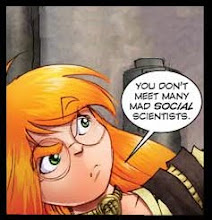A Post About (Recent) Posts
About 24 hours ago, I posted a humorous (or at least hopefully-humorous) piece about the most recent bribery accusations against Ariel Sharon. Just a couple of hours after I posted it, Sharon suffered a massive cerebral hemorrhage; while he remains alive as I write this, the odds of his full recovery appear small. Whether he survives to enjoy some kind of not-too-impaired retirement, or dies, or – worst of all – survives with severe brain damage, it appears that we have to get used to the idea of life without Arik as Israel’s leader or even as an active public figure.
I’ve been tempted to pull the humor piece; after all, poking fun at someone who is very likely dying is not exactly in good taste. Yaakov Kirschen, creator of Dry Bones, decided to pull a strip scheduled to run next Sunday, even though it was much more tasteful and respectful than my piece. After considerable agonizing, I decided to leave what I’d written alone. For one thing, unlike Yaakov’s cartoon, my post had already been published; to remove it after the fact would seem dishonest to me. But even more important, I don’t think it would be fair to Ariel Sharon. For me at least, part of what was special about Sharon was the fact that he seemed really to enjoy what he was doing; I never had the feeling that he took himself over-seriously, as so many politicians do.
I’m in no condition right now to offer any learned (or even ignorant) analysis of Israel’s post-Sharon political landscape. In any case, everyone else in the business is busy doing so; and most of the professionals don’t seem to have any better idea than I do as to what will happen next. So I won’t waste my time looking for an intelligent-sounding way of saying “dunno”. I’ll just say that I hope and pray for Ariel Sharon somehow to pull off a full recovery, so I can go back to making fun of him and voting for him.
* * *
Both Mog (of Mind of Mog) and James Na of Guns and Butter referenced my previous post, “Cancer, Correlation, Causation, and Counter-Terrorism”. Both of them (see Mog’s post here and James Na’s post here) read my post as an analogy between terrorism and cancer itself – in James’ words, “why terrorism is like cancer in so many ways”. Strangely enough, I really hadn’t intended to make that connection at all. I used cancer-prevention research as way to illustrate how difficult it can be to assign discrete causes to complex phenomena – trying to show that just as nobody has shown conclusively that adding buckets of oatmeal to your diet will prevent your getting cancer, it’s very difficult to prove that many of the measures we take against terrorism (particularly things like retaliating in order to create deterrence) really work.
It’s traditional for “experts” on any subject to try to amplify their own significance by making their subject matter seem as important – and threatening – as possible. (Scott Adams of the Dilbert comic strip brilliantly satirized the typical TV-talking-head terrorism expert: “Buy my book or you’ll all die!”) Counter-terrorism, however, is a rather paradoxical field in which to be an expert, at least for those of us associated with the Institute for Counter-Terrorism. Rather than try to get people as excited as possible about terrorism, we try to get them to put terrorism in perspective – since the more panicky people are about terrorism, the more the terrorists are able to manipulate them. My favorite way to do this – and it makes me very unpopular in some circles – is to point out the lopsided ratio between traffic fatalities and deaths due to terrorism. (The cartoon refers to U.S. statistics; but even here in Terror Target Number One, traffic fatalities far outnumbered terrorism fatalities even in the worst years of the “Intifada”. Last year the ratio was ten to one.) If we can survive 450 deaths per year due to our own bad driving (multiply that by one hundred if you live in the United States), we can certainly survive a few terror attacks.
Of course, I don’t want to over-minimize (if there is such a thing) the importance of terrorism. Yes, it’s important, and evil, and disgusting, and if I didn’t think it was a serious problem I wouldn’t bother thinking and writing about it. But I’ve spent a considerable bit of my life hanging around oncology wards; I’d be very slow to compare anything in the field of public policy to cancer.
Some of my colleagues do use a medical analogy to help explain terrorism: They liken terrorism to a virus. Just as a virus hijacks a cell’s own machinery and resources to spread itself, terrorism uses its targeted society’s mechanisms – news media, political discourse, and so on – as tools for psychological manipulation. One of the best ways of fighting terrorism is to realize that when we respond to attacks with panic, and even when we respond with extreme anger and the urge to exact revenge, we are doing and thinking exactly what the terrorists want. Victory begins when we learn not to be manipulated. One of our leading experts on the subject used to say that by playing his regular Wednesday-night basketball game even when there had been a terror attack that day, he was doing his little part to fight terrorism. He eventually threw his back out and had to find something else to do on Wednesday nights, but the point stands.





0 Comments:
Post a Comment
<< Home